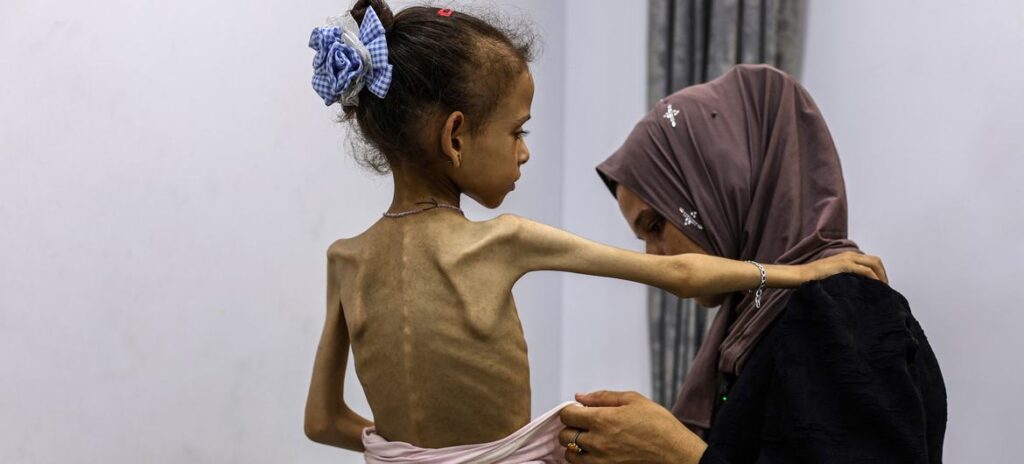UN Describes Gaza Famine as a “Failure of Humanity”
The Secretary-General of the United Nations, Antonio Guterres, recently labeled the famine now affecting Gaza City and neighboring regions as a “failure of humanity.” The dire conditions have escalated to a Phase 5 crisis, the most severe level in the Integrated Food Security Phase Classification (IPC), which assesses hunger on a global scale. According to the IPC, over half a million residents in Gaza are grappling with catastrophic circumstances marked by “starvation, destitution, and death.”
This alarming report has been categorically dismissed by Israeli officials, who refute claims of starvation in the region. They argue that aid restrictions are unfounded, contradicting assertions from numerous humanitarian organizations, eyewitness accounts, and statements from various UN bodies as well as several allied governments, including the United Kingdom.
Urgent Humanitarian Response Needed
The IPC has emphasized the urgent need for a comprehensive humanitarian response, warning that without swift action, the number of famine-related fatalities will increase significantly. The report predicts that by late September, famine could spread to areas such as Deir al-Balah and Khan Younis, endangering approximately 641,000 people—almost a third of Gaza’s population—with catastrophic conditions.
In addition, the IPC warns that up to 132,000 infants under the age of five will face severe malnutrition, a situation that has already led to the deaths of 271 individuals from malnutrition-related causes since the onset of the conflict, including 112 children.
| Condition | Population Affected | Phase Level |
|---|---|---|
| Catastrophic Conditions | 641,000 | Phase 5 |
| Emergency Conditions | 1.14 million | Phase 4 |
| Children Under Five at Risk | 132,000 | N/A |
Local mothers like Reem Tawfiq Khader, a mother of five, express despair over the situation, stating, “We haven’t eaten any protein for five months,” with her youngest child unaware of what fruits and vegetables are. Another resident, Rida Hijjeh, laments her daughter Lamia’s dramatic weight loss, attributing it to the severe lack of food.
International Reactions and Israeli Responses
In response to the troubling conditions, UN humanitarian chief Tom Fletcher remarked that the famine was preventable, citing systematic obstructions to aid access attributed to Israeli policies. Guterres condemned the situation as “a man-made disaster” and emphasized Israel’s obligations under international law to ensure the provision of food and medical supplies to civilians.
In a contrasting narrative, Israeli Prime Minister Benjamin Netanyahu asserted that Israel’s actions were aimed at preventing starvation, claiming that 2 million tons of aid have been allowed into Gaza since the conflict intensified.
The international community continues to criticize Israel for its treatment of aid delivery, and despite recent initiatives such as humanitarian airdrops, these efforts have drawn criticism for their inefficacy and potential harm to civilians.
As tensions mount, the IPC report underscores the urgent need for a resolution to the humanitarian crisis unfolding in Gaza, where widespread starvation threatens the lives of thousands.


